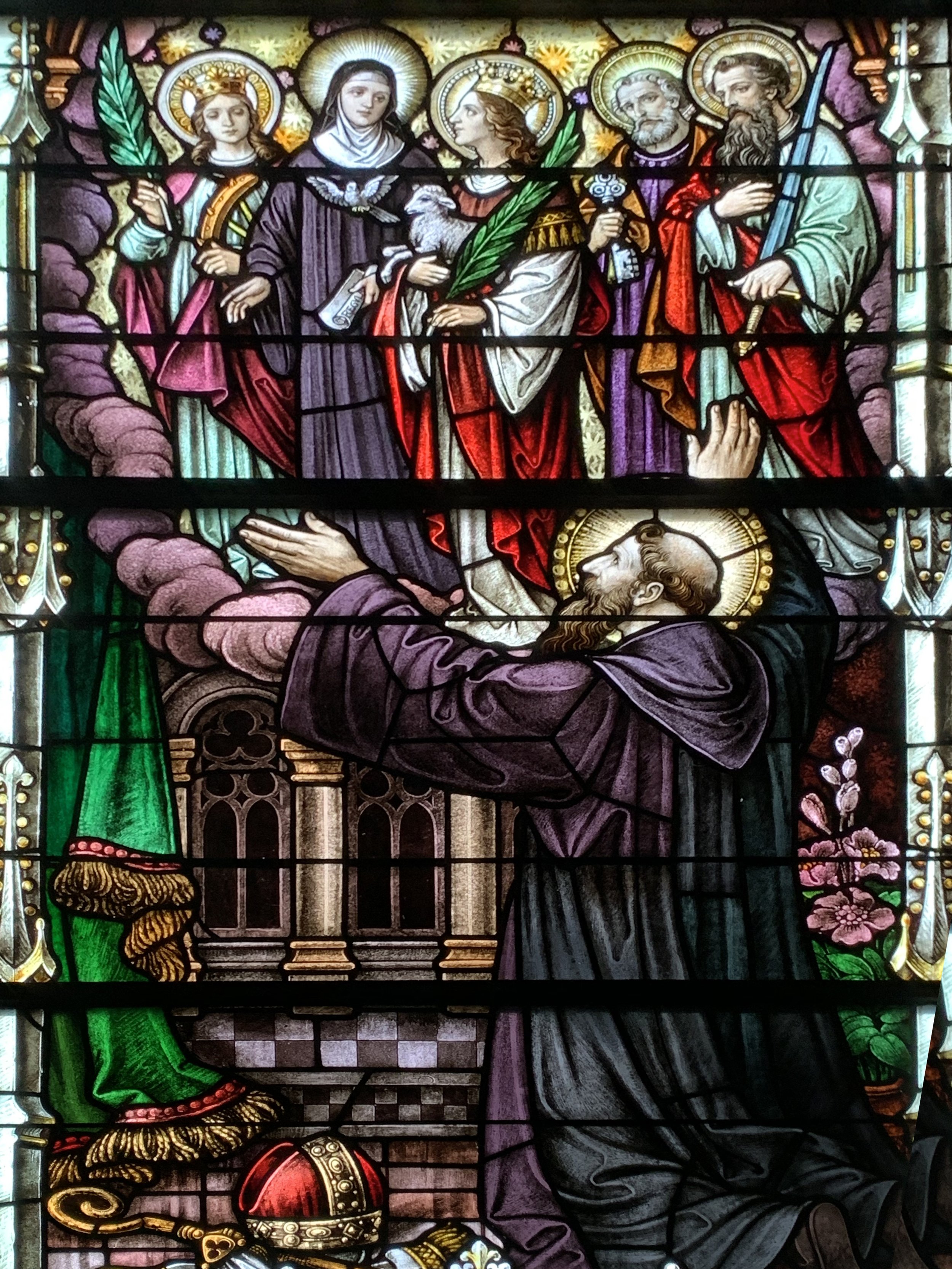
Oblates — “one offered up”
What is an Oblate?
From the very beginning, Benedictine monasteries accepted boys, and convents received girls, offered to them by their parents for their religious training and education. These children lived in the community, shared its daily round of religious activities, and became known as "Oblates," from the Latin oblatus, meaning "one offered up."
Oblates are quite simply lay men and women who have chosen to integrate their prayer, work, and family life with their Christian journey according to the principles established by St. Benedict and his Rule.
Oblates do not take vows or live in a monastery. They rather make promises to seek God more intensely through the principles of the Rule of St. Benedict and in partnership with the monks or sisters of the Benedictine community with which they are affiliated.
Oblates may be single lay people, married lay people, or secular clergy. In their promise to live according to the spirit of the Rule, they commit themselves to seek God above all things and to "prefer Christ to all else" in the ordinary circumstances of their lives lived out in the world with the values of the Gospel.
Unlike members of Third Orders like Franciscan, Dominican, Carmelite, and Augustinian, Oblates do not adhere to a distinct rule of their own, nor are they bound to a specific set of religious practices. They do, however, promise to "dedicate themselves to the service of God and neighbor according to the Rule of St. Benedict, insofar as their state in life permits." This promise involves a personal commitment to nurture the specific values contained in the Rule and to make some time in one's schedule for the Liturgy of the Hours and the reading of Holy Scripture.
Photo below: Window of St. Benedict, 1924, St. Benedict Church, Carrolltown, PA
As men and women committed to live their ordinary lives by the principles of the Holy Rule, Oblates learn the value of seeking God in all things and at every moment. Just as Benedictine monks take vows of obedience, stability, and conversion according to a monastic manner of life, Oblates make promises to observe the spirit of these three primary values, as well as the other Christian values that underlie the details of the Rule.
Oblates are especially called to cherish silence, to extend hospitality, and to nurture reverence for all people and all creation. They come to accept the stark reality of evil and human weaknesses, both their own and those of others, and yet continually rise to welcome the healing love of Christ, who is ever present to challenge us beyond our failings.
Oblates grow to appreciate the necessity of ample time for prayer as a primary and time-tested means of fostering life in response to God's grace. In particular, Oblates enter into the traditions of the Liturgy of the Hours and of the holy reading of Scripture (lectio divina) to try and govern their whole lives by God's Word, with which they become permeated by the discipline of prayer.
Perhaps the commitment of Oblates can best be summed up by St. Benedict's urgent appeal to "listen," which is the first word of the Holy Rule. Realizing that God is speaking to us through every event and every person that theyencounter, Oblates and monks share the goal of making every moment of their lives a prayerful offering to God. To enter into such a life of continual surrender to God, Oblates must come to understand that the Rule is not so much a set of "rules" as a book of Christian wisdom, a time-tested interweaving of values and norms for living an intensely Christian life in community with others. Oblates come to see the Rule as a practical guide of life that disposes them more and more toheed the call to sanctity in the ordinary things of life. "Preferring nothing to Christ" becomes their motto in all circumstances so that, together with the monks of the Archabbey, they allow God to expand their hearts in Christ's love, however painful that process may be.
In this age of confusion and instability, the Rule provides Christians with a much-needed norm and a concrete way for discipleship. In this age of individualism, affiliation with the Archabbey as an Oblate provides fellowship, mutual support, and loving communion with monks and other Oblates in our common striving for the everlasting life for which God has so lovingly destined us all.
